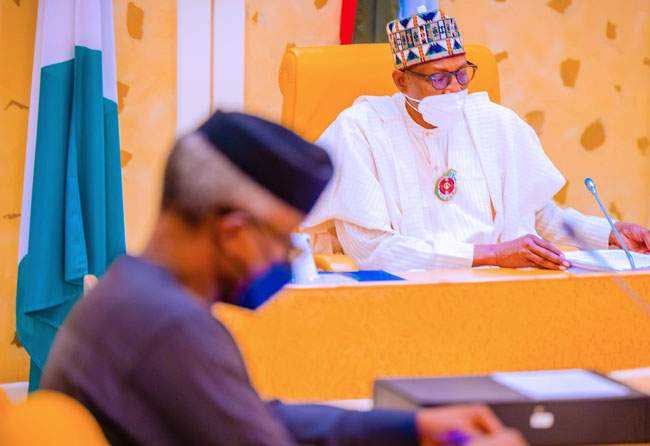The Federal Government has spent N2 trillion ($4 billion) on local content development over the past 12 years.
In a document on the ‘Nigerian Content Intervention Fund’, Obinna Ofili, the General Manager of the Nigerian Content Development Fund & Treasury Management, an arm of the Nigerian Content and Development Monitoring Board, explained that the fund was established to promote the development of indigenous oil and gas companies in Nigeria.
A breakdown of the N2tn ($4bn) spent so far, showed that the Nigerian Content Intervention Fund with Bank of Industry was valued at $300m; NCDMB Research & Development Fund with Central Bank of Nigeria, $50m; Working Capital & Capacity Building Fund with NEXIM Bank, $30m and Women in Oil & Gas Fund with NEXIM Bank, $20m.
Also, NOGAPS Manufacturing Fund with Bank of Industry was put at $50m, and the NCDMB Direct Interventions through Equity Investments stood at $3m.
On how the fund was deployed, the NCDMB said 70 per cent went into commercial intervention applied to supporting commercial activities in the oil and gas Industry; working capital; project/contract execution; asset acquisition; loan refinancing; special project vehicles, and specialised projects and equity investment.
The remaining 30 per cent, he said, was invested into capacity building expenditure.
The NCDMB is a federal agency established by the Nigerian Oil and Gas Industry Content Development Act which came into effect on April 22, 2010.
The board is charged with the responsibility of developing, implementing and monitoring programmes that ensure a steady growth of local content in Nigeria.
It has been instrumental to the development of the country’s hydrocarbons industry and the local businesses that have flourished as a result of its efforts.
The board said gave a breakdown of how it disbursed the $300m fund with the BoI, saying the payouts were $293m and N32.8b. It added that total balance with BOI was $31m and N3bn as of November 2022.
The total money creation by loan disbursements was about $25m and N34bn.
While total applications received by BOI from 169 companies amounted to $869m and N78bn as of Q3 2022, total number of beneficiaries was 61 companies, and disbursements so far were $293m and N33bn.
Nigeria’s oil and gas industry accounts for 10 per cent of the country’s Gross Domestic Product, which is the largest in Africa, worth $402bn. Despite petroleum’s modest contribution to the country’s GDP, it represents 86 per cent of export income and 50 per cent of government revenue.
Although the government said it wanted to increase crude reserves to 40 billion barrels, as well as to achieve a daily national production of 3 million bpd. The country’s oil production recently crashed to 900, 000 barrels per, recovering to about 1.6mbpd in December, according to Chief Upstream Investment Officer, NNPC Upstream Investment Services, Bala Wunti, who spoke at the yearly NCDMB conference in Bayelsa.
He disclosed at the 11th Practical Nigerian Content forum in Uyo, Akwa-Ibom State recently that country’s crude oil production was back up to about 1.6mb.
He maintained that the output increase was a result of the government’s rectangular renewed efforts to tackle crude oil theft.
“Crude theft affects all architecture that funds the country. When the oil theft reached its peak, everything including gas production was affected. What the government adopted was what we called the rectangular security architecture”.

Leave a Reply